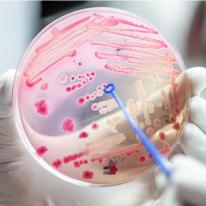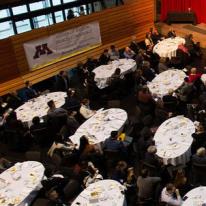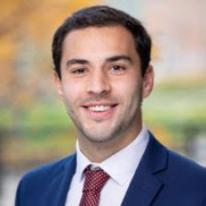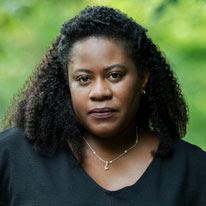It is no secret that culturally competent care is important. It leads to improved health outcomes, patient safety, and reduced care disparities. It is a learning process, one that we are committed to across the health sciences, in order to increase access and meet the needs of diverse communities.
Community-University Health Care Center (CUHCC) provides comprehensive team-based care to almost 12,000 patients annually from diverse countries, cultures, and backgrounds. Part of what makes CUHCC so special is the culturally aware and responsive care they provide. Several years ago, Roli Dwivedi, MD, now CEO for CUHCC, saw a diabetic patient who was preparing to fast in preparation for Ramadan, which led her to develop an education curriculum for CUHCC staff, students, residents, and faculty. Working with community members, Imams, and focus groups, they created a community- and clinic-facing module, Ramadan Revealed: A Community-Based Perspective to Ramadan, to better understand the importance of Ramadan, common misconceptions, and reflect on how community narratives can help better medical education. Now, every year at CUHCC, they hold an education session for CUHCC staff and invite patients to come into the clinic to help with medication management while fasting.
This is just one example of many that demonstrate culturally-competent care using a non-Western centric approach. CUHCC works with their patients to improve care and interacts with the communities they serve, and learns to adapt.
Driving Innovation & Discovery

University Seeks Critical Support from State for UMN Health
Today the U of M announced its preliminary request for State of Minnesota support of its health system (UMN Health). UMN Health will take bold steps to accelerate increased access, equity and quality to the University’s leading research and clinical care, while safeguarding Minnesota’s public academic health assets. “Before us is a once-in-a-lifetime opportunity to channel the University’s 170-plus year legacy of discovery, service and world-class impact to elevate the health of Minnesotans for generations to come,” said University President Joan Gabel. “But we can only do so through a strong partnership with the State. The positive return on this investment is clear.”

Collaboration Leads to Break through in Antibiotic Delivery
Antibiotic resistance, the ability of bacteria to resist existing antibiotics, threatens our health care systems and the success of medical procedures on a daily basis. An invention resulting from the collaboration of two researchers from different disciplines seeks to combat that threat by delivering a new antibiotic to sites of infections that are difficult to treat.

Annual Research Ethics Day Conference - What Makes Your Research Trustworthy? Threats and Opportunities
Join interdisciplinary experts on March 1 to hear how to promote and ensure trustworthiness in scientific and other research. Optimizing and signaling the trustworthiness of research is crucial to maintaining the trust of colleagues, participants, those who apply our research, and the wider public. National leaders will discuss the expectations of all these collaborators and audiences, including research funders, partners, participants, trainees, and journals.

Register Now for the 22nd Annual Design of Medical Devices Conference
Join the Bakken Medical Devices Center for the 22nd Annual Design of Medical Devices Conference on April 17-19, as part of the Institute for Engineering in Medicine Innovation Week. The mission of the Design of Medical Devices Conference is to facilitate collaboration between academia and industry. In addition to more than 20 technical sessions, there are three different workshops, a 5.10k run, six keynote presentations from leaders in medtech and health care, multiple poster sessions and more.

Minnesota Public Health Training Center Internship Funding Announcement
Do you have students considering a field placement or internship but who are worried about the cost? The Minnesota Department of Health is offering Student Field Placement funding for internships this spring and summer. Up to three individual Student Field Placements or Collaborative Projects—involving individual or group of students and faculty—in the amount of $3,500 each are available to support student internships. Applications due March 31.
Advancing Interprofessional Educational & Training

The Importance of Learning to Care for Older LGBTQ Adults
The experiences of lesbian, gay, bisexual, transgender, and queer (LGBTQ) older adults—including access to health care and trauma that affects their wellbeing—can greatly affect their health and interactions with health care providers. Working with the Minnesota Northstar Geriatric Workforce Enhancement Program (MN-GWEP), Rajean Moone, PhD, LNHA, LALD, FGSA, authored MN-GWEP’s recently launched LGBTQ Aging Care toolkit which includes a free online interactive module for health professional students to learn about the unique needs and challenges of LGBTQ older adults as well as tips for providing LGBTQ welcoming care.

Students: What Do You Enjoy Most About Interprofessional Activities?
“The number of opportunities to work alongside other students in other health sciences programs coupled with the community impact from the activities was one of the major reasons I chose to attend the U of M. The opportunities to learn and practice interprofessionalism at the U of M are unparalleled. Students have a limited amount of time to hone their skills of collaborating with others in different professional fields in a supportive environment. As the health care leaders of tomorrow, we must come together to provide the highest quality of care that patients can easily access and afford.” - Brenden Lipp, master of healthcare administration candidate
U-Wide Events and Opportunities

Ethics Grand Rounds: Black Reproductive Health: Getting at the Root Cause of Inequity
Join the Center for Bioethics on Feb. 24 for their upcoming Ethics Grand Rounds. Structural racism disadvantages Black birthing people before, during, and after pregnancy, leading to heartbreaking health inequities for them and their babies. Relationship-centered and culturally-centered care models provide needed support to Black birthing people, making strides on the path towards racial birth equity.

This course explores what mindfulness is and isn’t through direct experience and discussion. You’ll investigate different aspects of mindfulness and its implications for your life. Held live via Zoom or in person over four weeks for 90 minutes per week, or as a one day intensive for seven hours.



